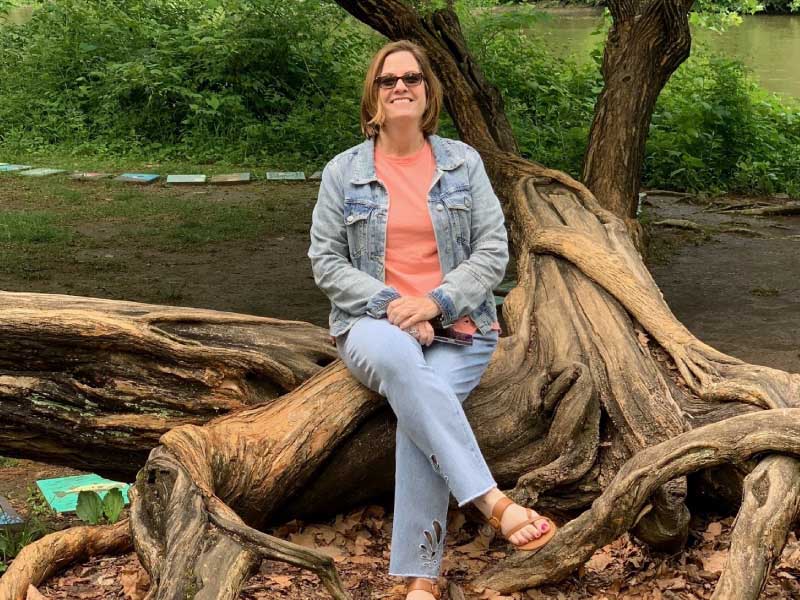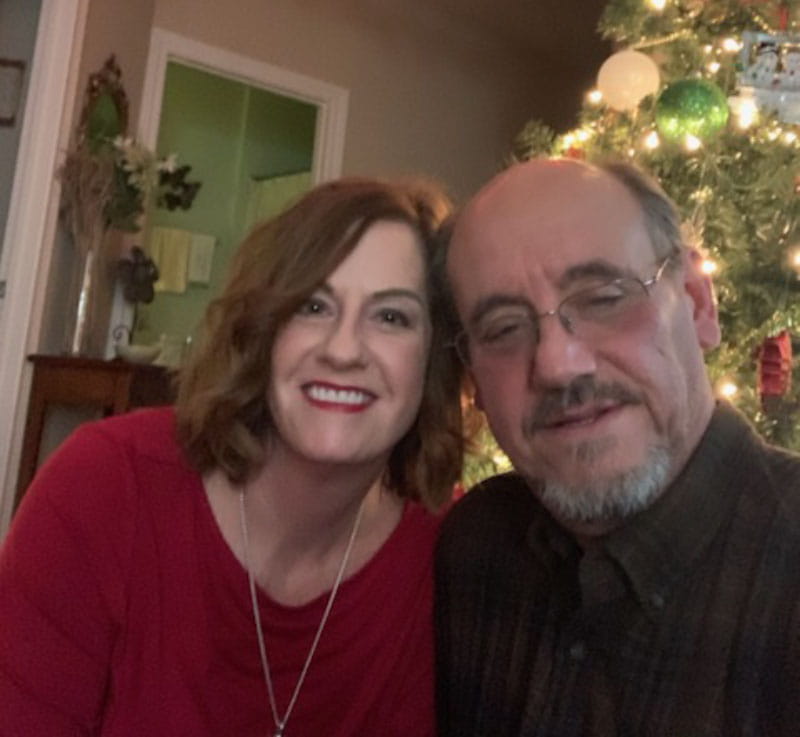Her heart stopped during a procedure to treat her stroke
By Kellie B. Gormly, American Heart Association News

Holly Page was having a great day. She got her hair done, then enjoyed a long dinner catching up with friend Lisa Stillings. They were walking out of the restaurant when something strange happened.
Page tried to speak but couldn't.
"When I got under a streetlight, I slowed down and looked at her, and she was leaning into me," said Stillings, who recognized the speech difficulty as a classic stroke symptom.
Indeed, doctors at a hospital in the Columbus, Ohio, area determined Page was having an ischemic stroke, the kind caused by a blood clot. The clot was found on the left side of her brain, compromising the right side of her body.
Page needed a thrombectomy, a procedure in which doctors can remove the clot. This hospital wasn't equipped for it, so she was sent elsewhere via helicopter.
During the procedure, Page's heart stopped. She was in cardiac arrest.
Doctors revived her through CPR. They also were able to remove the clot. They were unable to tell Page, then 54, what caused the stroke and cardiac arrest. She was already recovering from endometrial cancer and a hysterectomy, but doctors said they seemed unrelated.
Page spent 10 days in the hospital. Her right side felt weak. Her speech remained compromised. She tried talking to friends who visited her, but the words just wouldn't come out right.
She also struggled to grasp everything that happened. When a therapist mentioned why Page was in the hospital, she shouted back, "I did not have a stroke!"
Even as she continued with physical and speech therapy, ongoing difficulty speaking caused her to feel embarrassed.
"I hated asking people for help," she said. "I didn't want people to know about my impairment."
She had trouble with her short-term memory. She feared another stroke or cardiac arrest. Depression set in.
Page came out of that dark time. She found solace in Christianity and spending time at her church.
"I know that God protected me," she said.

Six-plus years after her stroke and cardiac arrest, Page occasionally struggles to find the right word when speaking. She accepts that she probably always will. She prefers to focus on the fact she's regained most of her functioning. She lives in Dublin, Ohio, and works in administration for a health organization. She tries following a heart-healthy diet and enjoys walking.
"I see my neurologist every year, and she always tells me I'm a miracle," Page said.
Ron Page – her older brother and caregiver after the stroke – said he considers her 99% back to her pre-stroke condition.
"She was pretty bad when they brought her in, but she turned things around," he said. "I just really applaud her ability to come back from all of this."
Stories From the Heart chronicles the inspiring journeys of heart disease and stroke survivors, caregivers and advocates.





